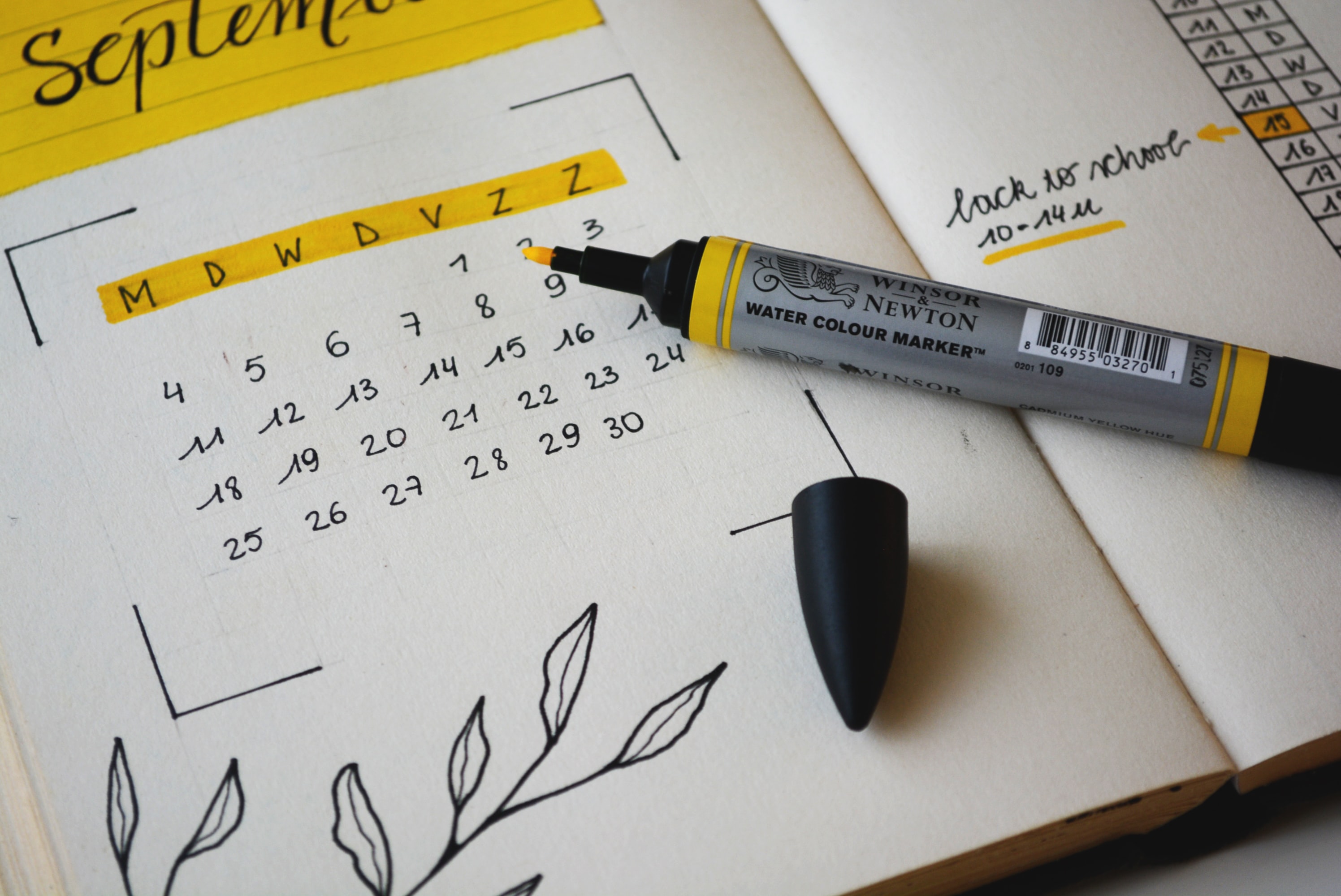Most people take one of two approaches when they plan out their day or their week—they either list out all they want to accomplish within the time given, or they chop up the time they have into segments meant to be spent on each task. Is one or the other approach better? Well, it depends on the person and the task. Let's look more closely at each approach to better understand the advantages and disadvantages. Lastly, we'll consider a possible third way.
Planning for Achievement
If you’re like me, like most people, you focus on what you need to get done. That’s what to-do lists are for, reminding us of what must be completed. On any given afternoon, I sit at my desk with the intention of finishing items x, y, and z before the day is over. I start with x, work on it until I finish, move on to y, make as much progress as I can, and then—oh wait, I’m out of time! I spent the whole day doing x and half of y, and now z remains unstarted, ready to get in the way of my work tomorrow, when I meant to be working on projects a, b, and c. Rats!

Photo by Glenn Carstens-Peters on Unsplash
There are three big disadvantages to planning for achievement. The first is that most of us don’t have a clear idea of how long a task will take. When I was a college freshman, I would write out a to-do list at the beginning of the week. As an English major, a lot of my list was made up of reading assignments: chapter 12 from this textbook, chapter 7 from that one, the first half of this novel, the second act of that play. At first, I treated all these assignments the same, each one a single item to check off the list. The only problem was that they took wildly different amounts of time to complete. A long, dense chapter from a textbook called Critical Approaches to Literary Interpretation could take two hours or more, while a breezy chapter from Dickens could take 15 minutes or less.
When I made my to-do list for a given afternoon, I’d figure I could probably knock out 4 or 5 things. However, when the 4 or 5 things all ended up being time-consuming things like dense textbook readings, I’d consistently run out of time and feel bad about it.
My problems were complicated by the second disadvantage of planning for achievement: Parkinson’s Law. The Law states that “work expands to fill the time available for its completion.” Sometimes I would have only one thing on my to-do list and an entire afternoon to do it. I’d be excited because that meant I’d have a bunch of extra time to goof off or get ahead on other projects. However, more often than not, the one task would end up taking the entire afternoon, and I couldn’t figure out why such a simple task used up all my time. Parkinson’s Law explains it.
The third downside of planning for achievement is that it’s very easy to feel guilt instead of pride, to identify failures instead of successes. If you say, “I’m going to finish x, y, and z today,” and then only finish x and half of y, are you likely to characterize that as a win? No, you are much more likely to focus on the fact that your failure to complete two of the things, which outweighs your success in completing the one: a net loss. That sense of failure leads to feelings of guilt and inadequacy, which in turn make it harder to work well the next time.
About two-thirds of the way through every semester I would get to that point where the psychological weight of all those unfinished tasks, all those unmet expectations, was enough to crush me. I would wish for a time machine so I could just zip forward to the beginning of the next semester, where I could have a fresh start free from the baggage I’d accumulated in the present one.
Planning for Time
So is planning for time any better? What I mean by “planning for time” is that you tell yourself “I’m going to spend x minutes doing this and then y minutes doing that.” The focus isn’t on what you’ll get done but instead on how long you’ll spend doing that thing. Let’s discuss how such an approach can solve the disadvantages of planning for achievement.

Photo by Estée Janssens on Unsplash
The first disadvantage was that most of us don’t have a clear idea of how long a task will take. But if you plan for time spent on task, this disadvantage disappears. As it turns out, completing a reading assignment depends on all sorts of factors: number of pages, difficulty of the reading, your attention span and current frame of mind, what time of day you read, where you read, etc. But reading for 30 minutes takes…[checks watch]…30 minutes. Every time.
The second disadvantage, Parkinson’s Law, also becomes largely meaningless—in fact, it tends to work in your favor. If you tell yourself you’re going to work on an assignment for 30 minutes, some subconscious part of your brain interprets that as “I have 30 minutes to finish this assignment” and then you end up working toward that end without even meaning to. Now, that doesn’t mean you’ll finish in the time allotted every time, but you’ll certainly make more progress this way.
Similarly, the third disadvantage—our tendency to think in terms of failure rather than success—becomes easier to overcome. If you tell yourself you’re going to read for 30 minutes and then you read for 30 minutes, that feels like a win, even if you didn’t finish the chapter. Even if you don’t quite make it to 30 minutes—say you only read 27 minutes—it’s still easier to frame as a success. If someone asks about your day, you’re more likely to say “Well, I spent an hour on each of my classes—I mean, almost an hour—and made some really good progress.” That’s way better than “Well, I wanted to get done with my homework in each class, but I still have a long way to go.”°
There’s another advantage of planning for time: doing so helps you be strategic about what you can and cannot do. As it turns out, most of us literally have more to do each week than there are hours in the week to do it. We’re set up to fail, because there is no way to get everything done, even if we stay on task every second of every day.
When you plan for achievement, you find yourself facing what you know is an unwinnable fight. That makes it hard to even want to begin. When you plan for time, however, it’s easier to see the big picture of your days and weeks and realize that the hour you have to devote to any particular activity is the only hour you have for it, so if you don’t finish the task in the time you have, you’ll have to leave it unfinished. When I plan my days around achievement, I end up feeling like I have nothing but loose ends I can never tie off. When I plan around time, I feel like I’ve managed to mostly fill dozens of different cups, none of them to the top maybe, but none of them empty either.
A Third Way
Of course, there are downsides to only planning for time. Some tasks need to be finished regardless of the time they require. Sometimes certain tasks have to be completed before other tasks can be started because they depend on the previous one for their success. Sometimes you need the boost in morale that comes with definitively marking something off your list.

And sometimes you need popcorn and Fererro Rocher.
Photo by Estée Janssens on Unsplash
Perhaps the best approach is one that combines both methods.
Back when I was a freshman, I figured out pretty quickly that my plan-for-achievement approach to doing my readings wasn’t working for me. The plan-for-time approach freed me from a lot of guilt, but I still needed to finish my readings on time, which didn’t always happen in the thirty minutes I set aside for a reading.
It occurred to me that I could be smarter about how I planned readings. The first thing I did was to stop treating all reading assignments as single blocks. When I made my weekly to-do list, I would count the number of pages in each reading and include that page count on the list so I could better estimate the time it would take—this also had the added benefit of making crossing larger assignments off the list more satisfying.
Next, I paid attention to how long various kinds of reading took (I may or may not have used a spreadsheet and timed myself over a period of weeks), and I quickly found out that, while dense textbook readings took me 2 minutes per page or so, breezy novels could be read at a rate of 2 pages per minute. Pretty soon I was able to plan for both time and achievement simultaneously because I could more or less accurately predict the time an assignment would take.




